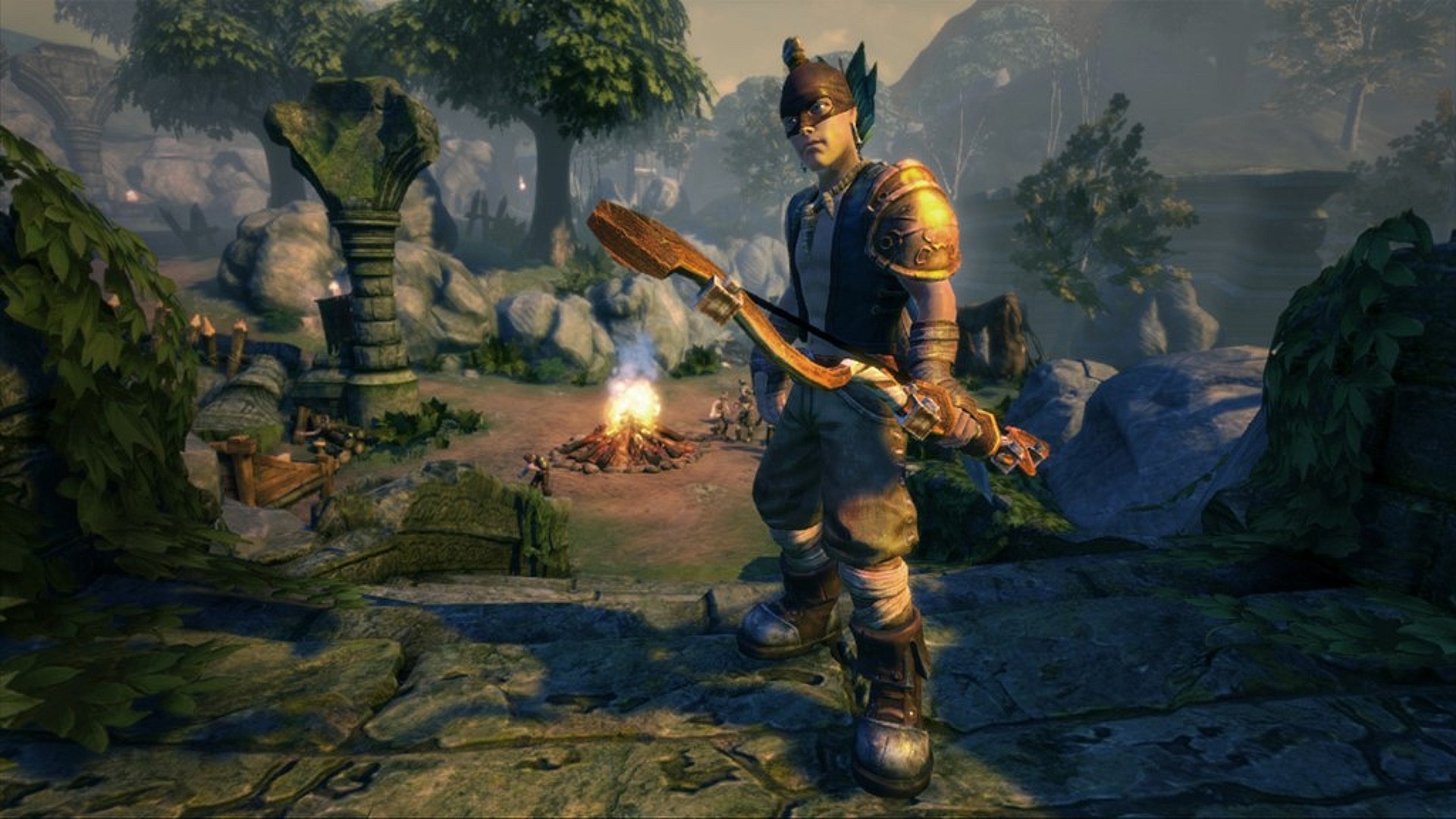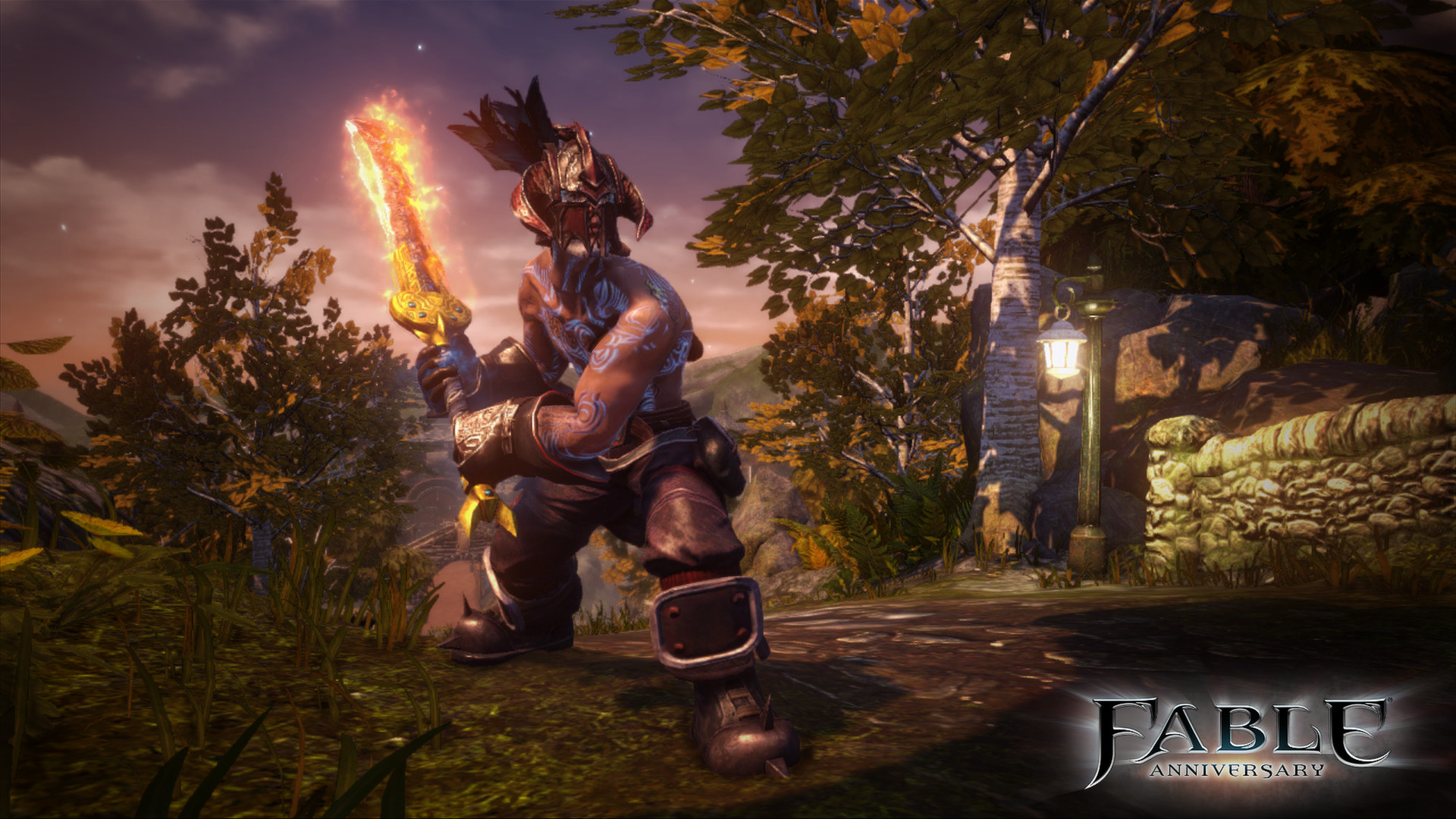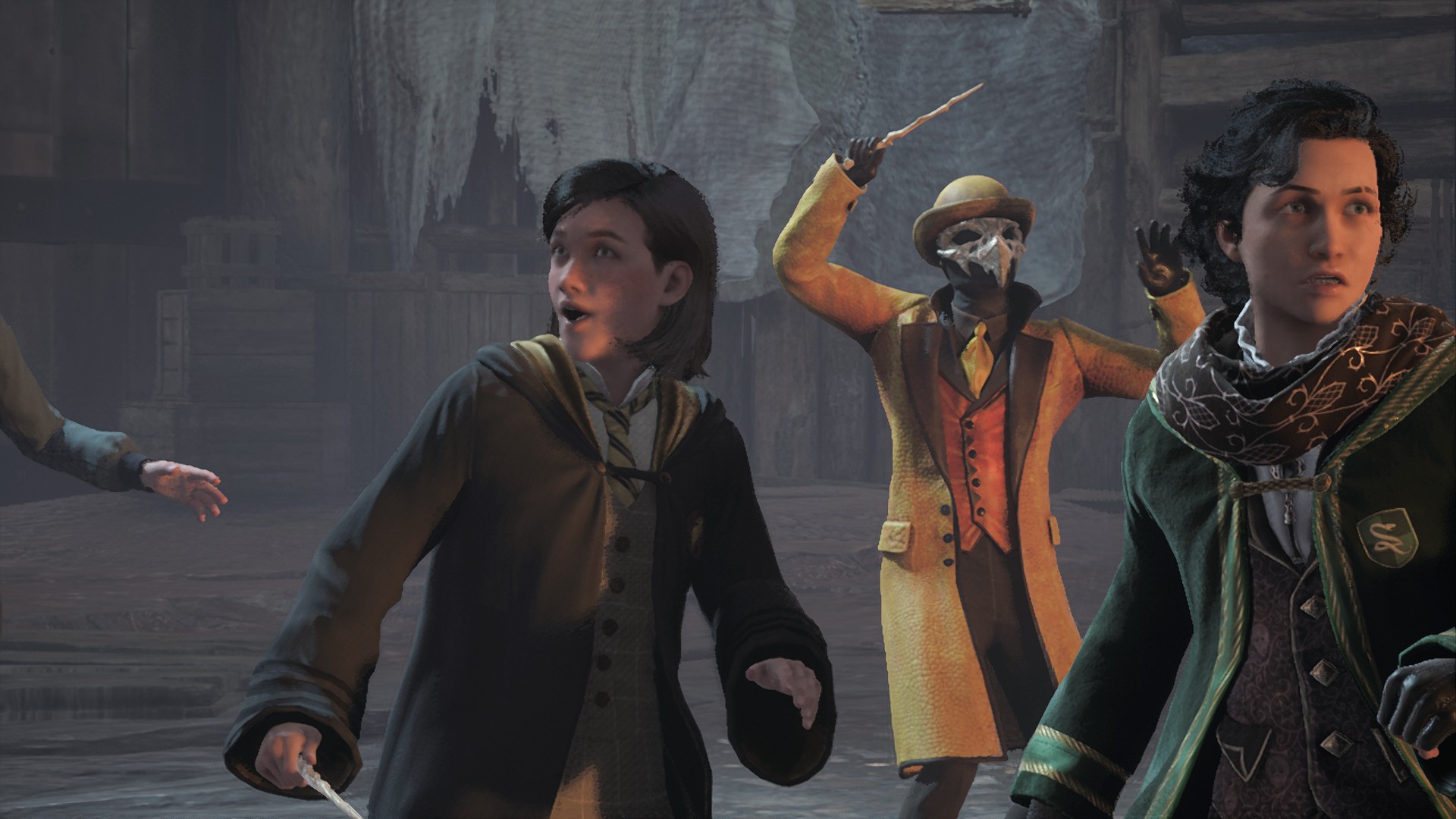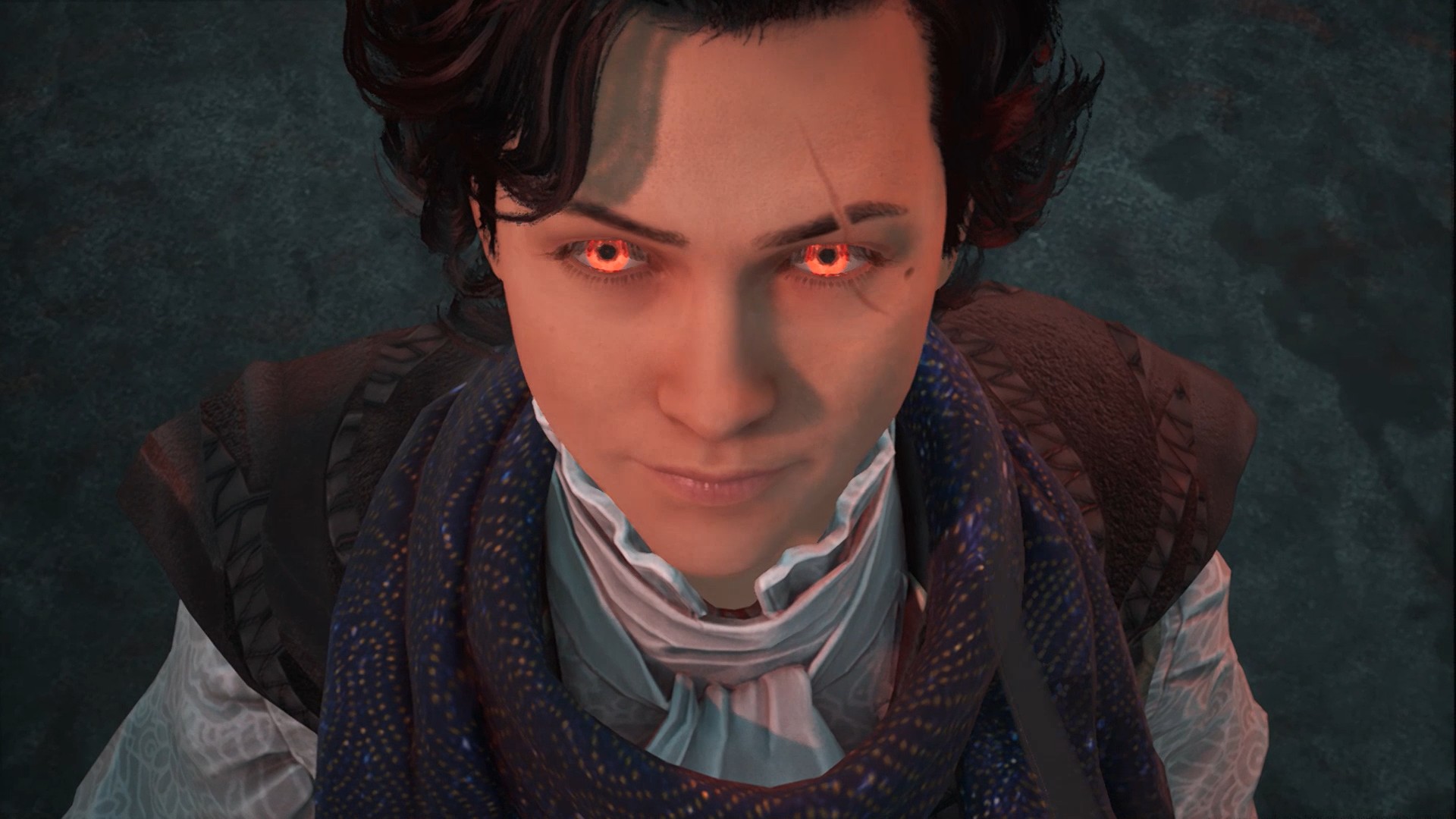Hogwarts Legacy could learn a lesson from Fable's morality system
Opinion | I'm playing Fable for the first time and it's magnifying my biggest issue with Hogwarts Legacy

"Right," the lady bristles in a broad Lancastrian accent as my little Hero tells her of her husband's infidelity in Fable. "I'm going to turn him into Balverine food!"
As she thanks me for my kindness and marches uphill to give her partner a good earful, some on-screen text pops up to inform me that I've just performed my first good deed by ratting out the unfaithful husband. It's an action that has nudged my moral compass just slightly in the direction of the good and virtuous, something that will be a constant push and pull during my time in Fable as my actions manifest consequences.
20 years later in Hogwarts Legacy, there are no such consequences to be seen. I am nasty to my peers, liberal with my use of Unforgivable Curses, and do the absolute most to be awful even though the game won't let me be evil. Fable might look a damn sight less flashy, but it's obvious: the lack of a morality system is a gaping wound in Hogwarts Legacy, and that's what makes Fable memorable to this day.
Judgement day


Hogwarts Legacy missed a trick by not doing more with its companions
The absence of a morality system in Hogwarts Legacy, an RPG where you can indeed learn dark magic and use it against your enemies, was no accident. When we sat down with narrative director Moira Squier and lead designer Kelly Rowland, they told us that "this was important because it comes from a place of non-judgement by the game creators." But why did they equate authentic, in-game consequences with developer judgement against the player? This certainly isn't the case in Fable.
As I stepped out to explore the kingdom of Albion for the first time as someone pushing 30, I understood why Fable is still admired to this day. With each in-game decision holding the power to sway you from good to evil, there is an undeniable weight to every moment. Should you fight for the bandits against the people of Orchard Farm (villagers are much easier to kill than bad guys, after all), or will you do good by the Hero's Guild? The choice is yours, but the ramifications of your actions are made plain. That being said, the game doesn't judge you for your actions as much as it does open up a new pathway to fully lean into the kind of hero you wish to be.
In Fable, as you build up your reputation as good, evil, or neutral, your appearance changes too. Those of a good alignment will find themselves sprouting angelic blonde hair as their eyes turn a baleful sky blue. Conversely, those adamant to tread the path of evil should expect horns to grow from their foreheads, their hair to darken, and their eyes to burn red in their sockets. Sure, there's something uniquely uncomfortable about the Aryan promises of playing a good guy, but I do enjoy the concept of moralistic consequences extending to include not only how villagers respond to you, but how you actually look. It's a visual representation of where you stand in the eyes of your peers, signifying how they see you in the in-game world – and despite what the Hogwarts Legacy team might have feared, I don't think that Fable developer Lionhead Studios is judging us in the slightest. After all, we're evil because we chose to be, so that's very much on us.
Not that Fable's morality system is perfect. As you spend skill points to bulk up your young Hero and watch your character model transform, you get wrinkly and old and struggle to get about. There are ways to reverse the ageing process, such as sacrificing villagers or even your own spouse in the Chapel of Skorm. This is actually less evil in the game than divorcing your wife or husband, which sounds bizarre, but hey: it's the medieval times, and the fact you can divorce them at all is quite progressive when you think about it. Kind of. Maybe things will look a little different in Fable 4, but I certainly hope that developer Playground Games stays true to its robust morality system.
Sign up to the GamesRadar+ Newsletter
Weekly digests, tales from the communities you love, and more
It's my game and I'll be mean if I want to

We're evil because we chose to be, so that's very much on us
Two decades and a good bit of technological advancement later, Hogwarts Legacy has made its debut. The magical RPG takes us back in time to pre-Potter Hogwarts, allowing us to create our own character, learn spells at school, and unravel a mysterious story in the process. But as stunning as the world is to explore, something about Hogwarts Legacy feels flat and disingenuous. Until I picked up Fable for the first time, I absolutely could not figure out why.
When it comes to the use of magic in combat, Hogwarts Legacy clearly beats Fable. But wait a second, are my teachers really not going to respond when I try to avada kedavra a practice dummy right next to them? Am I really going to be let off for casting an Unforgivable Curse on school grounds with little more than a stern warning from Madam Kogawa? Yes, actually, because as Squier and Rowland told us in our Hogwarts Legacy preview, "we don’t have a morality system that punishes [the player] for doing so."
If that had happened in Fable, I would have probably lost about 100 reputation points and fallen heavily into the Evil side of the tracks. A gruff guard would have called me out for it, the villagers would panic, and I'd end up having to answer for my crimes in one way or another. In fear of our frustration with being told that we're behaving badly, Avalanche Software essentially created a world where nothing really matters because you're just that powerful. Rules apply for everyone else in Hogwarts Legacy except you, because you're a magical teenager with access to ancient powers and that's apparently enough to give you a free pass at being an asshole forever.
You can't help but feel that the game is holding you at an arm's length for fear of causing upset, and its immersion factor suffers as a consequence. As GamesRadar's Josh West said in his Hogwarts Legacy review, "the lack of any reasonable reaction to your actions further erodes any essence of role-playing." I never thought I would be begging for detention, but here we are. There is so much potential for an intuitive morality system in Hogwarts Legacy that I can only hope Avalanche takes a leaf out of Fable's book when it comes to creating some DLC.
Here are some more games like Hogwarts Legacy for a witchy ole time.

Jasmine is a staff writer at GamesRadar+. Raised in Hong Kong and having graduated with an English Literature degree from Queen Mary, University of London in 2017, her passion for entertainment writing has taken her from reviewing underground concerts to blogging about the intersection between horror movies and browser games. Having made the career jump from TV broadcast operations to video games journalism during the pandemic, she cut her teeth as a freelance writer with TheGamer, Gamezo, and Tech Radar Gaming before accepting a full-time role here at GamesRadar. Whether Jasmine is researching the latest in gaming litigation for a news piece, writing how-to guides for The Sims 4, or extolling the necessity of a Resident Evil: CODE Veronica remake, you'll probably find her listening to metalcore at the same time.


